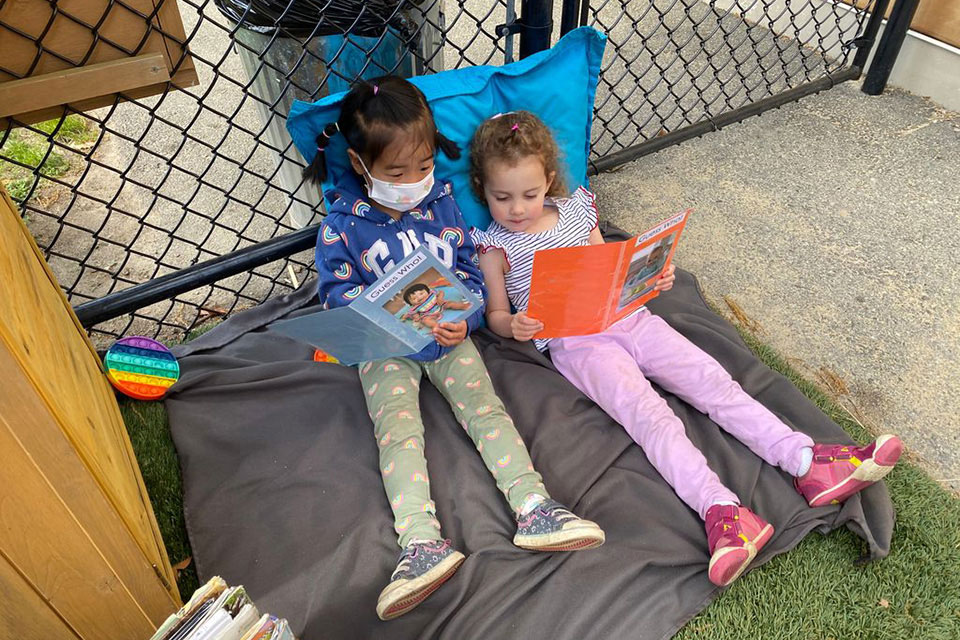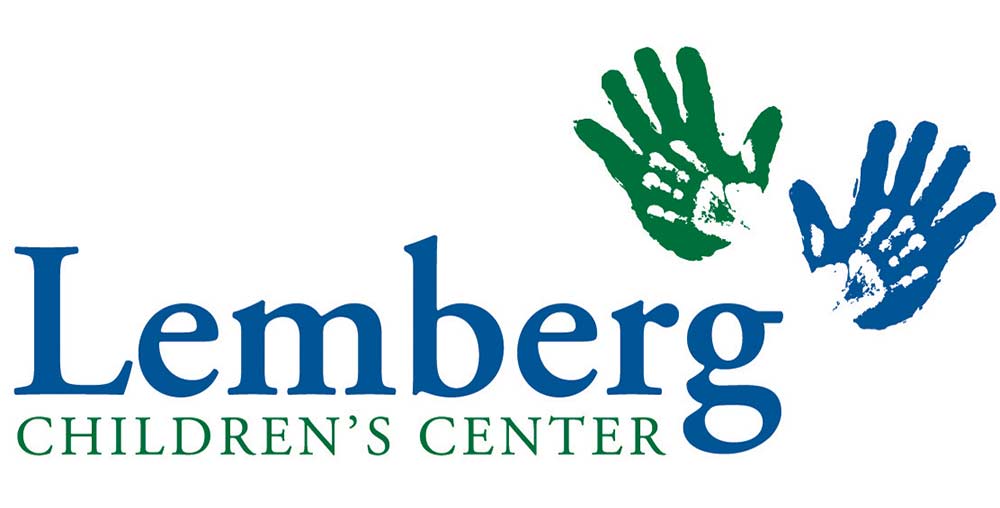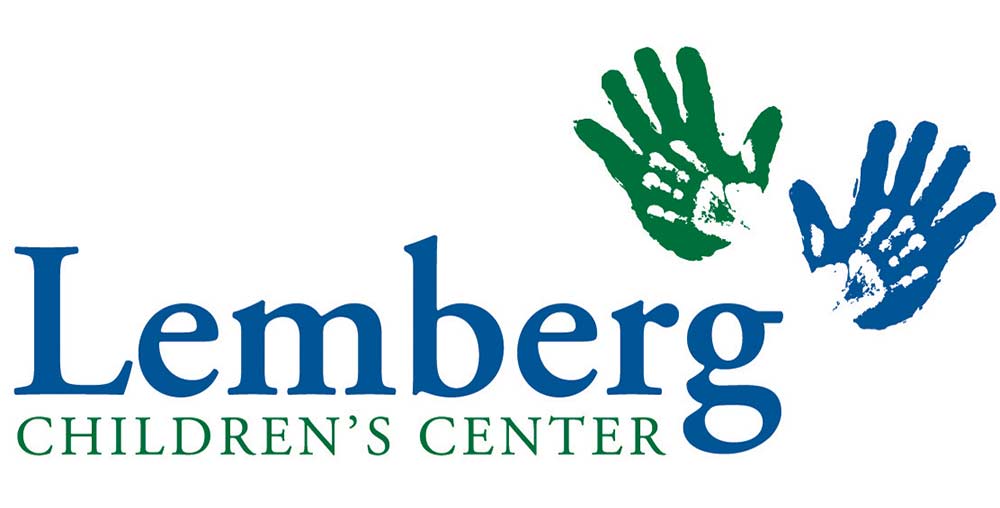History, Principles, Values and Philosophy

The Gersh and Sarah Lemberg Children's Center, Inc. — also known as Lemberg — was founded in 1970 by members of the Brandeis University community who needed high quality day care for their young children. Our founders were also seeking a community dedicated to thinking about diversity and supporting children's learning that research revealed as most successful for their developmental stage.
Our pioneers wanted to provide the south side of Waltham and the western suburbs with a new model of childcare. Early childhood educators have come to call this model "developmentally appropriate early education and care.
Values
Today, our model combines these features or goals:
- We welcome all children and treat them with attention, respect, and affection; and we encourage them to return this to others.
- We hire outgoing, friendly, family-centered professional caregivers and educators, who are encouraged to give hugs, be soft spoken, positive, and comfortable with each child.
- We expect parents to serve on our Board of Directors or do other Lemberg community work.
- We are open all year, 50 hours a week.
- We scale our private tuition rates, and seek additional funding to support a diversity of household incomes.
Lemberg is committed to family/staff cooperation and community service. We continue our vital mission to provide young children with loving, educationally appropriate care. We encourage friendship building, community involvement and excitement for learning. We welcome children who speak different home languages, celebrate different traditions, and have diverse abilities.
Over the years, we have improved our facility, curriculum, and the ways we attend to the needs of each child and parent. In 2014, we built our own center specifically designed for us. We give high priority to staff stability in our program and achieve it by paying above market salaries and benefits. Our center has enhanced its supervision and in-service development program for teaching assistants and college students. We value a good working relationships with other community and state agencies, and we participate actively in supporting the development of high quality childcare in the US and beyond. Lemberg has chosen to remain small in order to continue the personal, family-centered, cooperative effort that our model requires. These are achievements for which we are proud. Your support, and the continued participation of our alumni families, is essential for our school to work well and grow.
Principles
Our educational principles and curriculum are based on inclusive practices and an anti-bias approach to education. We include the following four goals of anti-bias education in all of our work with children and families:
- Each child will demonstrate self-awareness, confidence, family pride and positive social identities.
- Each child will express comfort and joy with human diversity; accurate language for human differences; and deep, caring human connections.
- Each child will increasingly recognize unfairness, have language to describe unfairness, and understand the unfairness hurts.
- Each child will demonstrate empowerment and the skills to act, with others or alone, against prejudice and/or discriminatory actions.
(From: Derman-Sparks, L. and Julie Olsen Edwards (2010) Anti-Bias Education for Young Children and Ourselves Washington DC: NAEYC, pp 4-5)
Philosophy
We design and implement a curriculum:- that is sensitive to cultural, racial, cognitive and physical differences.
- that is based on developmental and relational psychology theories and encourages adults to understand that play is an important way in which to learn.
- that is flexible, open and creative.
- that plans times when children can play in mixed age groupings.
- that incorporates an emergent approach education, which encourages our teachers to observe the interests of each child, and to provide a choice of activities based on these observations.
- that encourages the resolution of conflicts peacefully, using models that respects children.
The families in our center have different cultural, ethnic and religious backgrounds. Throughout the curriculum we discuss these, and other important aspects of our families.as we discuss family traditions, family beliefs, and other facets of race, ethnicity, culture and ability. We are non-sectarian and present information from the point of view of the child. We welcome families to work together with us to incorporate these ideas into the classroom.
Holidays are the focus of many family and cultural traditions. At Lemberg, we recognize and discuss holidays as a method of learning more about children and their families. We plan our curriculum on an emergent basis and reflect children's immediate needs and interest in our learning experiences. Our curriculum is also based on developmentally appropriate practices and tailored to meet the individual needs of the children in a particular group. Therefore, the amount of time spent and emphasis on holidays will vary by classroom.

